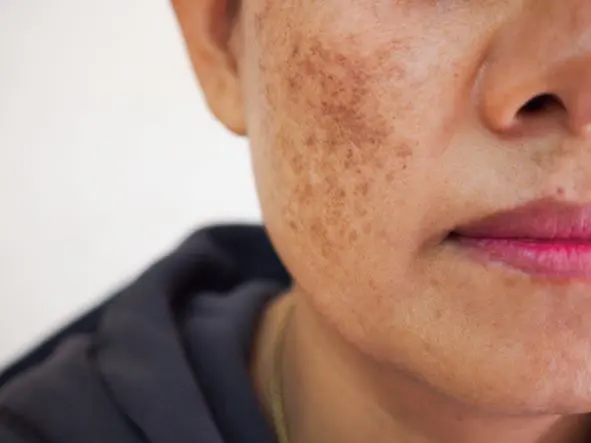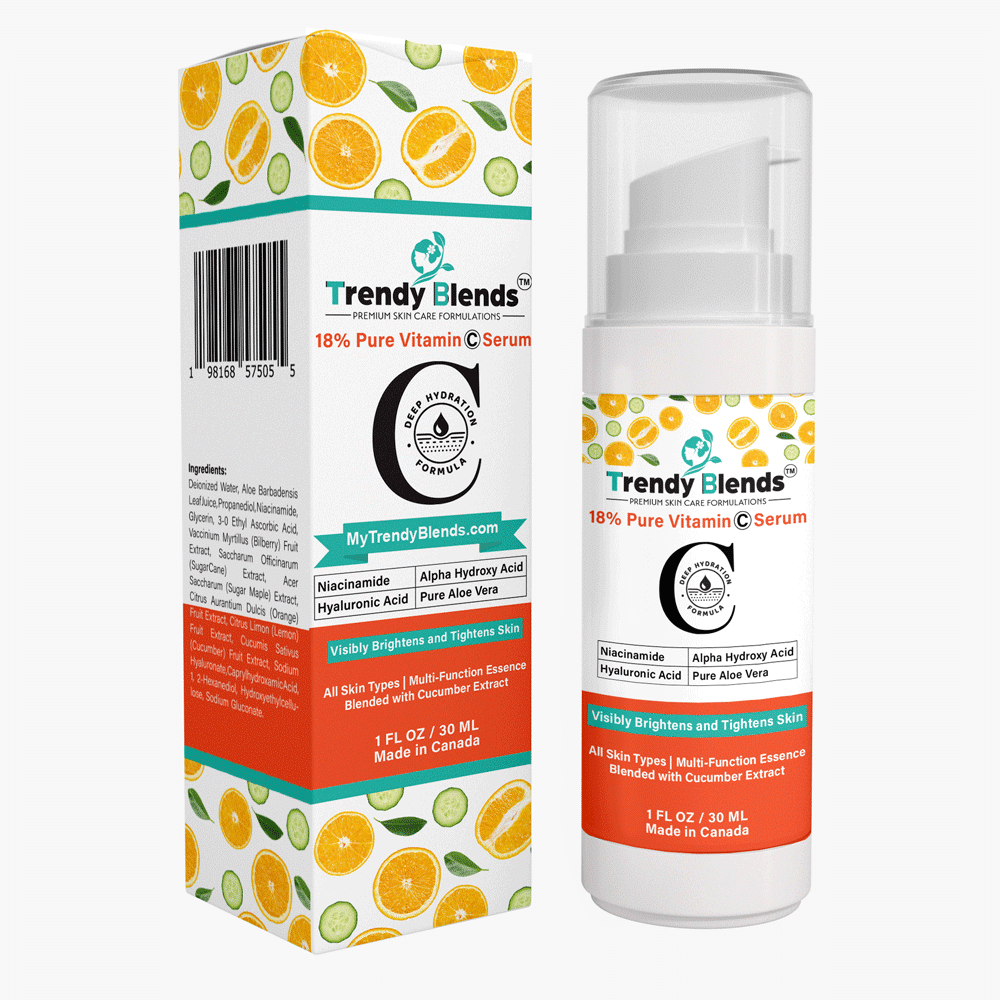11 Ways to Overcome Hyperpigmentation on the Face.
Table of Contents
Types, Treatment, and Causes.
Hyperpigmentation, characterized by the darkening of certain areas of the skin, is a common cosmetic concern that affects people of all ages and skin tones. These dark spots, patches, or freckles, often appearing on the face, can be caused by a variety of factors from sun exposure to hormonal changes and post-inflammatory responses. While it’s a benign condition, it can be a source of frustration and self-consciousness. Thankfully, there are effective strategies and treatments available to help manage and reduce its appearance. This article delves into 11 scientifically-backed approaches to overcome this skin concern on the face, empowering you to regain a more even and radiant complexion.

Understanding Hyperpigmentation: The Root of the Issue
Before diving into solutions, it’s important to understand the mechanisms behind skin darkening. The primary culprit is an increase in melanin, the pigment that gives our skin its color. This overproduction can be triggered by several factors, including:
- Sun Exposure: UV radiation stimulates melanocytes (the cells that produce melanin) to produce more pigment, leading to sunspots, melasma, and freckles.
- Hormonal Changes: Fluctuations in hormones, particularly during pregnancy or while using hormonal birth control, can trigger melasma, often called “the mask of pregnancy.”
- Post-Inflammatory Hyperpigmentation (PIH): This type of hyperpigmentation occurs after skin inflammation, such as acne breakouts, cuts, or burns.
- Genetics: Predisposition to hyperpigmentation can run in families.
- Certain Medications: Some medications can cause hyperpigmentation as a side effect.
11 Effective Strategies to Combat Facial Hyperpigmentation
Now, let’s explore 11 proven methods to fade and prevent hyperpigmentation on the face:
- Commit to Daily Sun Protection: Sunscreen is your first line of defense against hyperpigmentation. Apply a broad-spectrum sunscreen with an SPF of 30 or higher daily, even on cloudy days.“The sun is the origin of all beauty, but also the main cause of all aging.” – Unknown
- Topical Retinoids: Retinoids, such as tretinoin and retinol, are vitamin A derivatives that accelerate skin cell turnover, helping to fade dark spots and even out skin tone. They also stimulate collagen production.
- Hydroquinone: Hydroquinone is a powerful skin-lightening agent that works by inhibiting melanin production. It’s a prescription-strength treatment for moderate to severe hyperpigmentation. Note: Use hydroquinone under the guidance of a dermatologist due to potential side effects.
- Vitamin C Serums: Vitamin C is a potent antioxidant that brightens the skin and helps to prevent melanin formation. It also protects the skin from free radical damage caused by sun exposure.
- Azelaic Acid: This dicarboxylic acid has anti-inflammatory, antibacterial, and skin-brightening properties, making it effective for both hyperpigmentation and acne.
- Chemical Peels: Chemical peels use acids to exfoliate the outer layer of skin, revealing fresher, lighter skin underneath. They can be superficial, medium, or deep, depending on the severity of the pigmentation.
- Microdermabrasion: This procedure uses tiny crystals to exfoliate the skin, improving texture and reducing the appearance of dark spots.
- Laser Treatments: Laser treatments target melanin-rich areas, breaking down the pigment and promoting even skin tone. Options include Q-switched lasers and fractional lasers. Consult a qualified dermatologist to determine if laser treatment is right for you.
- Niacinamide: This form of vitamin B3 helps to reduce hyperpigmentation by inhibiting the transfer of melanosomes (melanin-containing packets) to surrounding skin cells. It also offers anti-inflammatory benefits.
- Licorice Extract: Licorice extract contains glabridin, which has antioxidant and skin-lightening properties. It can be a gentle alternative to stronger lightening agents.
- Exfoliation: Regular exfoliation, either physical or chemical, removes dead skin cells, allowing lightening products to penetrate more effectively and revealing brighter skin underneath.
Treatment Table:
| Treatment | How It Works | Primary Benefits | Considerations |
|---|---|---|---|
| Sun Protection | Blocks harmful UV rays from stimulating melanin production | Prevents new spots, protects current treatments | Must be applied daily and reapplied frequently |
| Topical Retinoids | Increases skin turnover, fades discoloration | Reduces hyperpigmentation, improves skin texture | Can cause irritation and sun sensitivity, use at night. |
| Hydroquinone | Inhibits melanin production directly | Highly effective at fading stubborn hyperpigmentation | Potential side effects, use with caution |
| Vitamin C Serums | Antioxidant, reduces melanin formation | Brightens skin, protects from free radical damage | Can oxidize easily, store in a dark, cool place |
| Azelaic Acid | Anti-inflammatory and skin-brightening properties | Effective for hyperpigmentation and acne | Can be slightly irritating for some |
| Chemical Peels | Exfoliates the top layer, promotes new skin cell growth | Fades dark spots, improves skin texture | Can cause temporary redness and peeling, requires sun protection |
| Microdermabrasion | Exfoliates with tiny crystals, removes dead skin cells | Improves texture and reduces surface hyperpigmentation | May not be effective for deep hyperpigmentation |
| Laser Treatments | Targets melanin-rich areas, breaks down the pigment | Effective for deeper pigmentation, precise targeting | Requires a qualified professional, can be expensive |
| Niacinamide | Inhibits melanosome transfer | Improves hyperpigmentation and inflammation | Generally well tolerated, minimal side effects |
| Licorice Extract | Antioxident and skin-lightening properties | Gentle alternative to stronger lightening agents | Usually well tolerated, requires consistent use. |
| Exfoliation | Removes dead skin cells | Allows products to penetrate deeper, reveals brighter skin | Can cause irritation, not recommended for very sensitive skin |
Building Your Regimen
- Start Slow: If using multiple actives, introduce each one gradually to avoid irritation.
- Consistency is Key: Hyperpigmentation takes time to fade. Be patient and consistent with your treatment plan.
- Consult a Dermatologist: Seek professional advice from a dermatologist to determine the best approach for your specific skin type and condition.
FAQs
- Q: Will hyperpigmentation go away on its own? A: Mild hyperpigmentation from temporary factors like sun exposure may fade overtime, but more persistent forms likely require treatment.
- Q: How long does it take for hyperpigmentation to fade? A: Results vary from person to person. With consistent treatment, you may see improvement within a few weeks, but significant fading may take several months.
- Q: Can hyperpigmentation come back after treatment? A: Yes. Sun exposure and hormonal changes can trigger the reappearance of hyperpigmentation. Ongoing sun protection is crucial for maintaining results.
- Q: Can I use multiple treatments at once?
A: It is possible, but it's advisable to consult with a dermatologist first to formulate a safe and effective plan for your skin.
- Q: Are there natural remedies that can help? A: While some natural ingredients like lemon juice, yogurt, and turmeric have anecdotal skin lightening properties, they are not as effective as scientifically-backed treatments and can cause irritation. It’s best to stick to proven methods for the most effective results.
- Q: Is hyperpigmentation the same as melasma? A: Melasma is a type of hyperpigmentation often caused by hormonal changes. It typically appears as symmetrical patches on the forehead, cheeks, and upper lip. In conclusion
By incorporating these 11 strategies into your skincare routine and consulting with a qualified professional, you can achieve a clearer, more even complexion and regain your confidence. Remember, consistency and sun protection are non-negotiable for long-term success.


